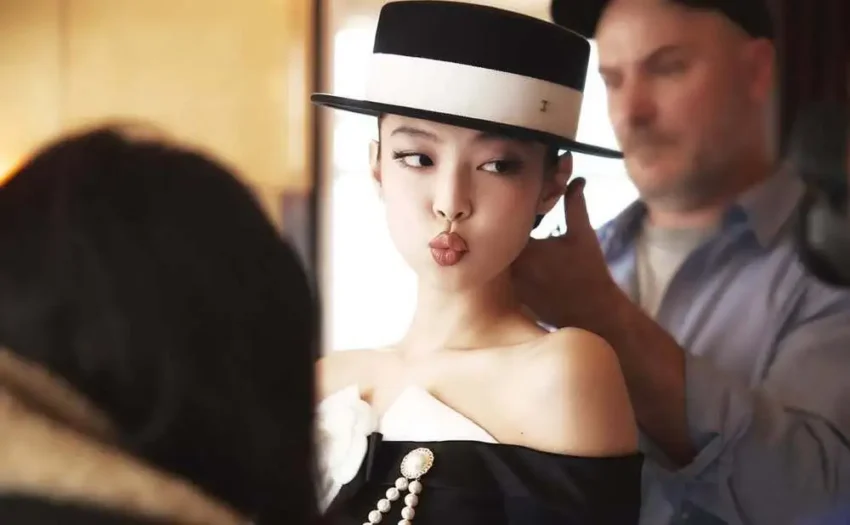Ruby and Rolling Stone came together as JENNIE’s first solo album earned a place among 2025’s best. The album merges R&B and pop with introspective lyrics, drawing comparisons to Rihanna’s Anti and earning strong praise from Pitchfork. Korean fans largely praised it, though some rivalry-fueled backlash revealed issues in K-pop fandom.
Rolling Stone Recognizes Ruby as a Major Musical Achievement
JENNIE of BLACKPINK is receiving widespread recognition for her first full-length solo album Ruby, which has emerged as one of the most celebrated musical works of 2025. On June 5, the highly respected American music magazine Rolling Stone selected Ruby as one of “The Best Albums of 2025 So Far,” a list that includes only 66 albums from around the world. JENNIE was the only K-pop artist featured, highlighting her unique position as a global performer who bridges Korean pop with broader musical artistry. The album’s inclusion reflects not only her popularity but also the critical depth behind her music.
JENNIE Presents Her Identity Through Ruby’s Personal Themes
The title Ruby comes from JENNIE’s full English name, JENNIE Ruby Jane, and the choice emphasizes her desire to present something personal and meaningful. She personally produced the entire album, using her creative control to build a story that reflects her journey and artistic vision. Containing fifteen tracks, the album explores various emotions while maintaining a consistent and introspective tone, allowing JENNIE to break free from her group image and position herself as a thoughtful solo artist with a distinct voice.
Rolling Stone Finds Ruby Echoes of Rihanna’s Anti
In its review, Rolling Stone praised Ruby for its inventive approach to pop and R&B, noting that JENNIE reinterpreted the sound that shaped the 2000s and 2010s in a refreshing and intelligent way. The magazine compared the album to Rihanna’s 2016 classic Anti, saying that JENNIE not only captures the emotional depth of pop R&B but also delivers moments of self-reflection that feel like a second generation of Rihanna’s groundbreaking work. Her ability to control the sugary textures of pop while injecting her own narrative stood out as one of the album’s defining qualities.
Pitchfork Awards Ruby a Strong Score Among K-pop Releases
Prior to the Rolling Stone recognition, Ruby received a rating of 7.1 out of 10 from Pitchfork, a respected American outlet known for its rigorous music criticism. This score is relatively high, especially within the K-pop genre, where critical reviews from such publications are rare. For context, Ariana Grande’s seventh studio album Eternal Sunshine received a 7.2, while Billie Eilish’s third album Hit Me Hard and Soft earned a 6.8. Among all K-pop albums reviewed by Pitchfork, Ruby now ranks as the eighth highest. The highest score to date remains Seo Taiji and Boys’ 1992 debut album, which received an 8.3 in a retrospective 2020 review. Scores above 8 are so rare that Pitchfork places such albums in a separate category, further emphasizing JENNIE’s strong achievement.
Rolling Stone Highlights Zauner Alongside Ruby on the 2025 List
JENNIE was not the only artist with Korean roots to be featured on Rolling Stone’s midyear list. Michelle Zauner, a Korean-American singer-songwriter and writer, also appeared with her solo project Japanese Breakfast and its fourth full-length album For Melancholy Brunettes (& sad women). Rolling Stone praised her ability to blend mythological and everyday imagery with graceful instrumental work. The review noted that Zauner explores the unpredictable nature of her muse, using rich emotional detail to give life to her songs. Her inclusion alongside JENNIE demonstrates the rising influence of Korean-born artists in global pop culture, especially those who push musical boundaries while telling deeply personal stories.
Fandom Conflict Casts Shadows Over Ruby’s Acclaim
When news of JENNIE’s recognition spread across Korean online communities, many fans expressed joy, celebrating both the album’s strong critical reception and its chart success. A common sentiment was that the album deserved the praise and had proven JENNIE’s value as an artist in her own right. However, some negative comments surfaced as well, with a few users drawing unfavorable comparisons between JENNIE and fellow BLACKPINK member ROSÉ, attempting to downplay JENNIE’s accomplishments. These criticisms were quickly challenged by other users, who dismissed such comparisons as irrational and harmful. The situation reignited ongoing frustration with a deeply rooted problem in K-pop fandoms, where supporting one’s favorite idol often comes with attacking others. Despite years of discussion, this pattern of toxic rivalry remains a major issue that continues to damage the culture of appreciation in Korean pop music.

Thank you so much for reading this post! I’d love to hear your thoughts, so feel free to share them in the comments!


She’s an icon , she’s a legend, she is the moment!!!